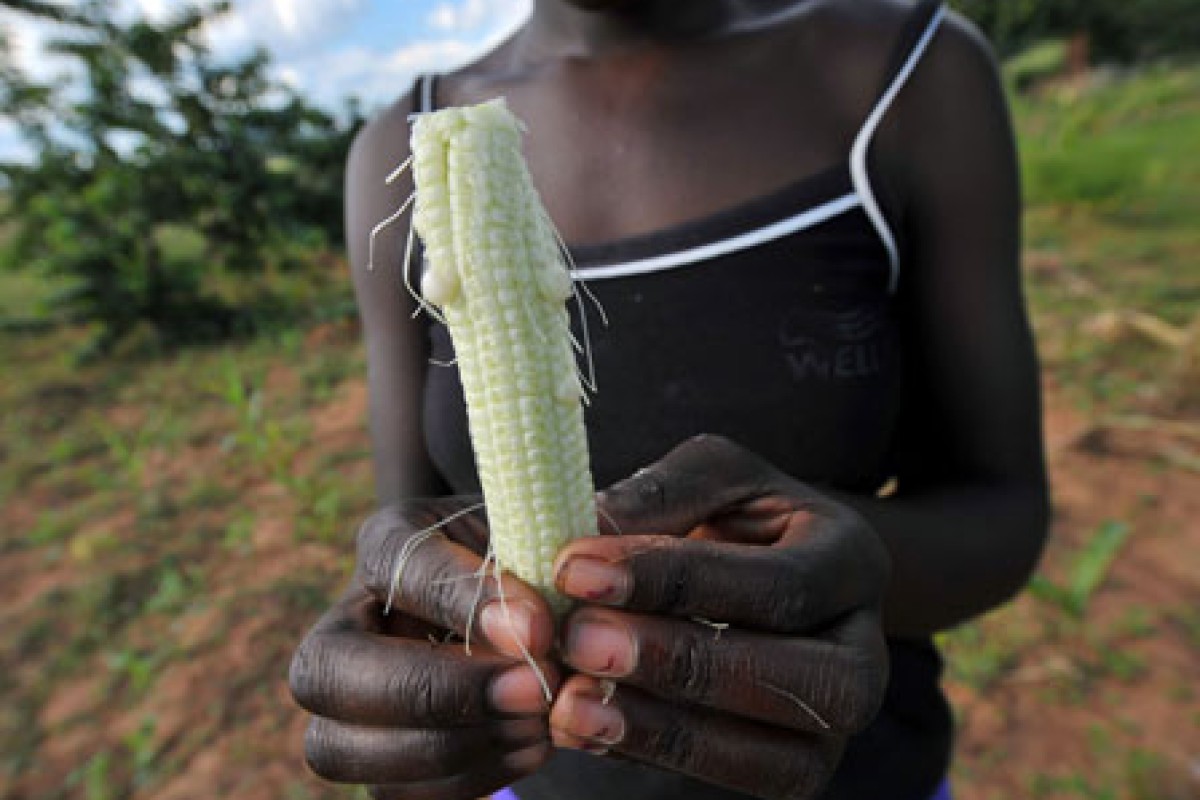 iii
iiiBy Cameron Dueck
The United Nations said last week that climate change could very quickly reverse all the progress that has been made on solving Africa's hunger and poverty problems.
Countries around the world have poured billions of dollars of aid into Africa in recent years to help feed poor people, educate them and build up a real economy. But changing weather patterns could reverse all of that.
The UN said climate change will start hurting Africa within the next 50 years, and because most African countries rely heavily on farming it could be a big threat to their food supplies.
Higher temperatures and less predictable weather could cut Africa's maize crops by 6.9 per cent. Maize, also known as corn, is a main food source in Africa. One-third of Africans live in areas that are prone to drought, and six of Africa's 10 largest cities are on the coast. Two of the biggest global impacts of climate change are expected to be droughts and rising water levels, which would mean flooding coastal cities.
The UN advised African leaders to make sure they protect their food sources and develop agricultural knowledge to make better use of their land. Better natural resource management habits can help protect land from some of the impacts of climate change.
Last summer I sailed through the Arctic to learn more about how climate change was impacting the lives of the Inuit who have lived in the Arctic for generations. I had a chance to see climate change close up and hear stories from people whose lives are being impacted everyday by changing weather patters. The animals they hunt, the ice they hunt on and the land on which they build their houses is all impacted by climate change.
Now that I'm back in Hong Kong, people often ask me what I learned while I was in the Arctic. The biggest impact the trip had on me was that I met some of the first people in the world whose lives are being impacted by climate change in a real way.
Reading this report from the UN was a reminder that while the Inuit are today some of the only people who actually have to change their day-to-day habits due to climate change, this will soon be the case for millions of people around the world if we don't take action to stop it.
To to join the discussion, click here
Cameron is available to speak to primary and secondary students about environmental and climate change issues as well as his recent Arctic sailing expedition. Contact [email protected]
<!--//--><![CDATA[// ><!-- PDRTJS_settings_1970305 = { "id" : "1970305", "unique_id" : "default", "title" : "", "permalink" : "" }; //--><!]]>